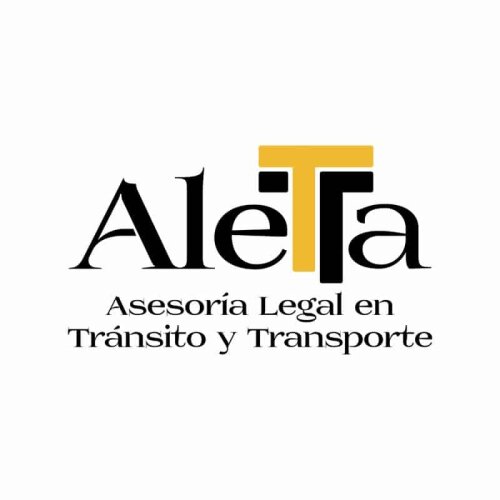Best Property Insurance Lawyers in Colombia
Share your needs with us, get contacted by law firms.
Free. Takes 2 min.
Or refine your search by selecting a city:
List of the best lawyers in Colombia

VISADOS PARA USA |Visa Americana | Visa Canadiense | Renovar Visa Americana| Visa B1 B2|Visa K1|Visa J1|VisaF1|
15 minutes Free ConsultationAbout Property Insurance Law in Colombia
Property insurance in Colombia is designed to protect individuals and businesses from losses and damages related to property. This encompasses everything from personal homes to large commercial enterprises. Property insurance policies often cover damages from events like natural disasters, fire, theft, and vandalism. The Colombian insurance market is regulated by the Financial Superintendence of Colombia (Superintendencia Financiera de Colombia), which ensures that the industry operates fairly and transparently. Understanding the terms and coverage of property insurance policies is crucial, as these contracts can be complex and vary considerably between insurers.
Why You May Need a Lawyer
There are several instances where seeking legal advice in relation to property insurance might be necessary. These include:
- Claim Denials: If an insurance company denies a claim, legal counsel can help evaluate the validity of the denial and potentially negotiate with the insurer.
- Policy Interpretation: The terms and conditions in insurance policies can be complex. A lawyer can help interpret these terms to ensure that you understand your coverage and rights.
- Dispute Resolution: Whether it’s a disagreement over the amount of compensation or coverage limits, a lawyer can facilitate resolution, either through negotiation or litigation.
- Contract Drafting: Businesses may need legal assistance to draft or review insurance contracts, ensuring that they are comprehensive and serve the client’s best interests.
- Risk Assessment: Legal experts can also aid in identifying potential risks not covered by existing policies and recommend additional coverages.
Local Laws Overview
Understanding the local laws surrounding property insurance is essential. In Colombia, property insurance is governed by the general insurance principles outlined in the Colombian Commercial Code (Código de Comercio). Key aspects include:
- Good Faith Principle: Both the insurer and the insured are expected to act in good faith, providing complete and truthful information during the insurance process.
- Indemnity: Policies are designed to indemnify the insured, meaning compensation is provided to return the insured to their financial position prior to the loss, but not to enrich them.
- Proportional Liability: In certain cases, liability and compensation may be proportional to the amount of coverage purchased relative to the value of the property.
- Subrogation Right: After compensating the insured, insurers may pursue claims against third parties responsible for the damage as a means of recovering costs.
Frequently Asked Questions
What types of property insurance are available?
Common types include dwelling insurance, business property insurance, and additional coverages like earthquake or flood insurance.
Is property insurance mandatory in Colombia?
While not mandatory by law, lenders may require property insurance as a condition for mortgage approval.
What should I consider when selecting a property insurance policy?
Evaluate the coverage limits, exclusions, premiums, and the insurer’s reputation. It's also wise to assess the claims process efficiency.
How can I file a property insurance claim?
Documentation of the damage, photos, and a detailed report are typically required. Prompt notification to your insurer is essential.
What is covered under property insurance?
Coverage usually includes damages from fire, theft, vandalism, and certain natural disasters, though policies vary significantly.
How long does the claims process take?
The duration varies based on the complexity of the claim and the insurer's processes, typically ranging from a few weeks to several months.
Can I negotiate my insurance policy terms?
While some terms are standard, policyholders may negotiate certain aspects like coverage limits and deductibles with their insurer.
What is an excess or deductible?
The excess or deductible is the amount the policyholder is required to pay before the insurance company covers a claim.
How can I lower my property insurance premium?
Increasing deductibles, installing safety features, and shopping around for competitive rates can help lower premiums.
What if I disagree with the insurer’s decision on my claim?
If disputes arise, consider seeking legal advice. Mediation or arbitration may be pursued to resolve disagreements.
Additional Resources
A number of resources are available to assist those seeking legal advice in property insurance:
- Financial Superintendence of Colombia: They oversee the insurance market and can provide regulatory updates and consumer protection information.
- National Insurance Federation (Fedeseg): Offers extensive information and statistics on the insurance industry in Colombia.
- Consumer Protection Agency (Superintendencia de Industria y Comercio): For cases of unfair practices or disputes.
- Law Firms Specializing in Insurance Law: Consulting a specialized lawyer can be crucial in handling complex claims or disputes.
Next Steps
If you need legal assistance with property insurance in Colombia, consider the following steps:
- Consultation: Schedule a consultation with a lawyer who specializes in insurance law to discuss your specific situation.
- Documentation: Gather all relevant documents, including your policy, claim forms, and any correspondence with the insurer.
- Representation: Depending on your case's complexity, you might need legal representation either for negotiation or court proceedings.
- Stay Informed: Keep abreast of any changes or developments in property insurance law by subscribing to industry newsletters or following relevant authorities.
Lawzana helps you find the best lawyers and law firms in Colombia through a curated and pre-screened list of qualified legal professionals. Our platform offers rankings and detailed profiles of attorneys and law firms, allowing you to compare based on practice areas, including Property Insurance, experience, and client feedback.
Each profile includes a description of the firm's areas of practice, client reviews, team members and partners, year of establishment, spoken languages, office locations, contact information, social media presence, and any published articles or resources. Most firms on our platform speak English and are experienced in both local and international legal matters.
Get a quote from top-rated law firms in Colombia — quickly, securely, and without unnecessary hassle.
Disclaimer:
The information provided on this page is for general informational purposes only and does not constitute legal advice. While we strive to ensure the accuracy and relevance of the content, legal information may change over time, and interpretations of the law can vary. You should always consult with a qualified legal professional for advice specific to your situation.
We disclaim all liability for actions taken or not taken based on the content of this page. If you believe any information is incorrect or outdated, please contact us, and we will review and update it where appropriate.
Browse property insurance law firms by city in Colombia
Refine your search by selecting a city.













